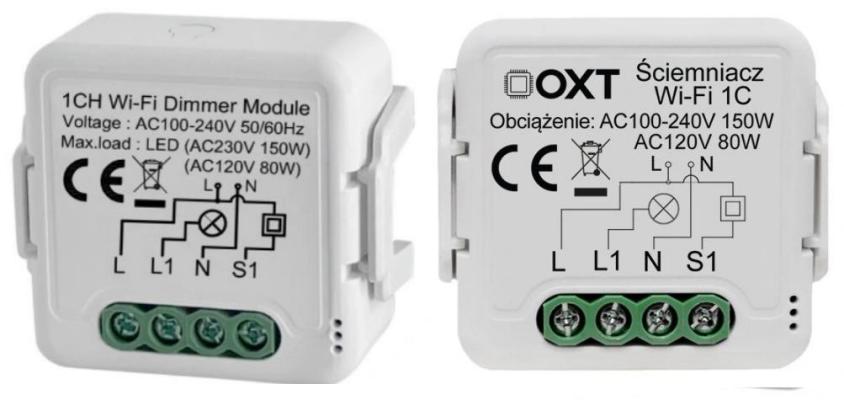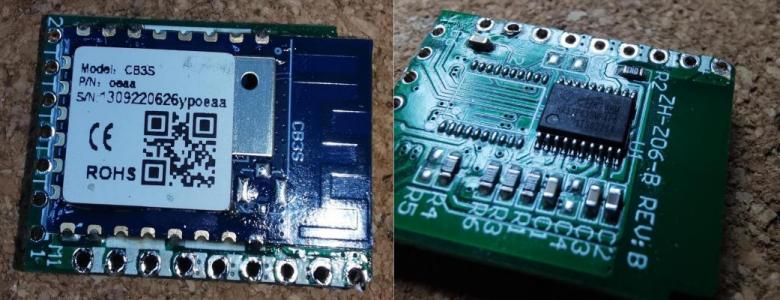OXT 1-ch dimmer

Overall description
OXT dimmers are another type of in-wall, brightness-only light dimming devices with Tuya-Smart application support, yet using different method to control light than the already-supported Tuya dimmers.
Advantage of the OXT implementations is that the firmware has full control over dimming functionality and physical switch input, so can control timings, transitions, effects, etc.
The devices seem to be manufactured in China and are sold under different marketing names such as OXT (Polish brand) and Smart Best, possibly also Himojo, HaveDeer, GIRIER, RSH are compatible as well but have not been tested... All of them look identical and have same dimensions 39.2x39.2x18mm, so very likely they are all using same hardware design and protocol.
Technical details
The device is using Tuya-compatible application structure with two main components:
- application-specific MCU (HK32F0301M), responsible for controlling light output, and
- a Tuya CB3S module that contains application level logic.
- external switch input GPIO is connected to CB3S module instead of the secondary MCU,
- communication to dimming MCU is unidirectional (uses ony TX pin of the UART interface),
OXT Control protocol
The protocol to control brightness is very simple, yet different than in other Tuya devices. Each UART frame consists of:
| Zeroes | Syn Header | Brightness | Footer? | Zeroes | |||||||
|---|---|---|---|---|---|---|---|---|---|---|---|
| 0x00 | 0x00 | 0xff | 0x55 | 0x01 | <XX> | 0x00 | 0x05 | 0xdc | 0x0a | 0x00 | 0x00 |
where 01 <XX> represents a brightness value, with XX ranging 0x00-0xff. The 01 byte could be a lenght
indicator,
but more likely it represents channel id, as there are also 2-channel versions available on the market. Not tested.

Programming
First programming needs to be done over USB-serial. The module needs disassembled (pretty easy) and moderate soldering skills are required to attach USB-RS232 converter cables.


Need to solder cables Rx, Tx, Gnd, Vcc (3V3) and CEN pin. Preferred flashing software is ltchiptool from LibreTiny project. Start programming like:
ltchiptool flash write <firmware.uf2>
then short CEN pin to ground for a moment to initiate progrmming mode on the module.
GPIO Pinout
| Pin | Function |
|---|---|
| GPIO06 | LED1 |
| GPIO08 | S1 (external switch input) |
| GPIO11 | UART TX |
| GPIO24 | BTN1 (internal button) |
Basic configuration
esphome:
name: dimmer
comment: OXT 1-ch dimmer
bk72xx:
board: cb3s # Using original CB3S module by Tuya, can also be replaced with other pin-compatible
# Disable UART logging - we need UART to talk to dimming MCU
logger:
baud_rate: 0
uart:
tx_pin: GPIO11 # rx_pin is not required (not used)
baud_rate: 9600
light:
- platform: oxt_dimmer
id: lamp1
name: lamp1
sensing_pin:
number: GPIO08
inverted: true
mode: input_pullup
min_value: 0
max_value: 255
default_transition_length: 1s # tranistions would work!